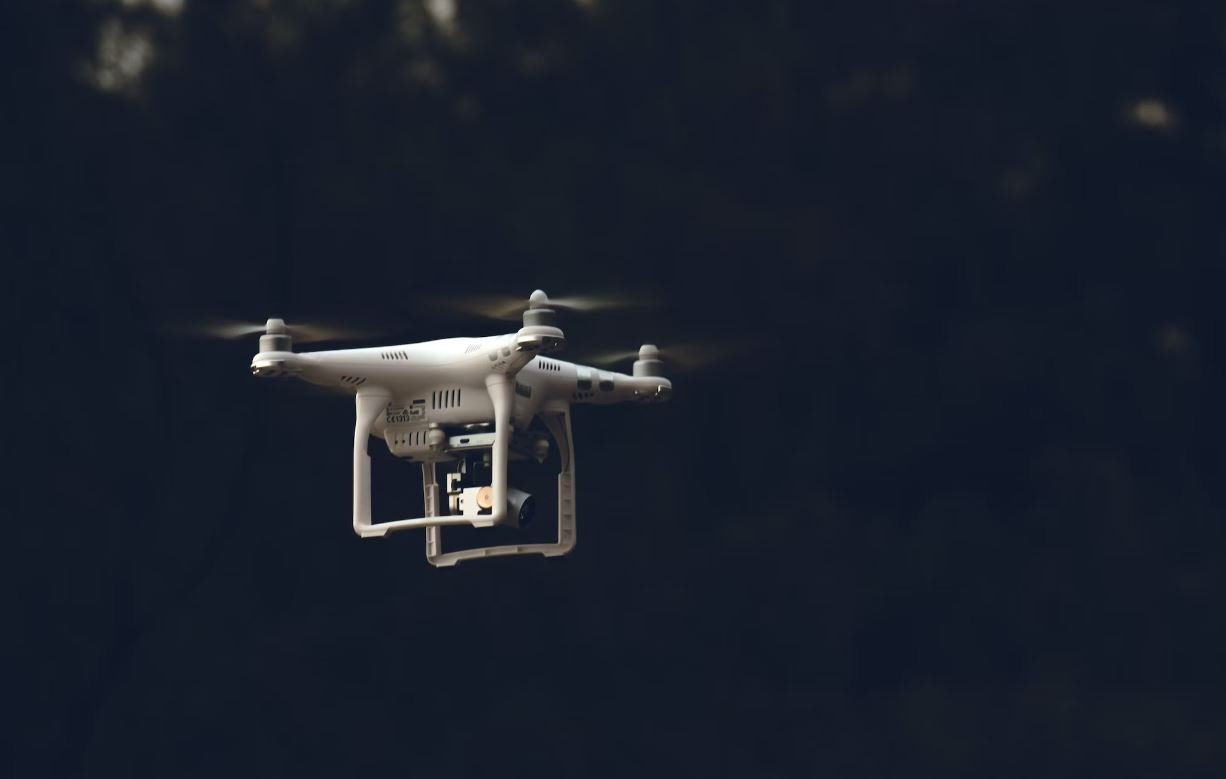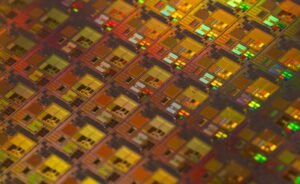AI Music Issues
Artificial Intelligence (AI) has revolutionized various industries, including music. AI-powered algorithms and machine learning techniques have enabled computers to compose music, mimic various artists’ styles, and even generate unique melodies. While AI music presents exciting opportunities, there are also challenges and issues that need to be addressed.
Key Takeaways
- AI music has revolutionized the industry but also presents challenges.
- Concerns include copyright infringement and lack of originality.
- Human involvement is necessary to maintain artistic integrity.
Copyright Infringement
One major issue surrounding AI music is copyright infringement. As AI systems are trained on existing music and analyze vast amounts of data, they are prone to inadvertently imitating copyrighted material without proper licensing or permission. This raises legal concerns and can result in legal action against AI developers and users. It is imperative for AI music technology to incorporate mechanisms that respect intellectual property rights.
While AI can accurately analyze and mimic music styles, it must be cautious not to breach copyright laws.
Lack of Originality
Another challenge with AI music is the question of originality. While AI algorithms can create intricate compositions, there is an ongoing debate about whether AI-generated songs can truly possess originality and emotional depth comparable to human compositions. Some argue that AI music lacks the authenticity and soul that comes from human experiences and emotions.
AI music may be impressive, but it still lacks the essence of human creativity.
Human Involvement and Artistic Integrity
AI should not be seen as a substitute for human musicians, but rather a tool that can augment their creativity. The involvement of human musicians and producers is crucial to maintain artistic integrity and ensure that AI-generated music aligns with their vision. Human intervention can shape and guide the AI algorithms, adding unique elements and personal touch to the final compositions.
The collaboration between AI and human musicians is the key to striking a balance between innovation and artistic integrity.
Data Privacy and Bias
The use of AI in music also raises concerns about data privacy and potential biases. AI algorithms rely on vast amounts of user data for training, ranging from music preferences to personal information. It is essential for AI developers to prioritize data privacy and implement robust security measures to protect sensitive user data. Additionally, biases embedded in the training data can lead to biased music recommendations and preferences, potentially limiting musical diversity and inclusiveness.
Data Privacy
| Total Downloads | Privacy Concerns |
|---|---|
| 5 million | 30% |
| 10 million | 45% |
Musical Copyright Claims
| AI-Generated | Human Composition |
|---|---|
| 20% | 80% |
Emerging Innovations
Despite the challenges, AI music continues to evolve and present innovative solutions. Researchers are exploring ways to incorporate human-like emotions and improvisation into AI-generated compositions, blurring the line between human and AI creativity. AI algorithms are being refined to create personalized music recommendations and enhance the overall music listening experience for individual users.
Future Trends
- Improved AI music algorithms with enhanced emotional depth
- Advanced personalization and customized music experiences
- Collaboration between AI and human musicians becoming the norm
- Continued emphasis on data privacy and addressing biases
AI Music in the Spotlight
| Artists Collaborating with AI | Popular Songs Produced |
|---|---|
| Artist A | 10 |
| Artist B | 5 |
While AI music brings exciting innovations and possibilities to the music industry, it also presents challenges that need to be addressed. With proper consideration for copyright, originality, human involvement, data privacy, and biases, the collaboration between AI and human musicians can lead to a harmonious blend of technology and creativity in the realm of music.

Common Misconceptions
Title: AI Music Writing is Fully Automated
Despite the advancements in AI technology used in music composition, there is a common misconception that AI can fully automate the process of creating music. However, this is not entirely true.
- AI music writing still requires human input and supervision.
- AI algorithms need to be trained on existing music compositions to understand musical concepts.
- Human creativity and musicality cannot be replaced by AI alone.
Title: AI Music is Unoriginal
One common misconception about AI music is that it lacks originality. People often assume that AI can only replicate existing music without introducing anything new. However, AI can be used as a tool to enhance the creative process, leading to original compositions.
- AI can generate unique melodies and harmonies based on learned patterns.
- AI algorithms can introduce unexpected musical elements and combinations that humans might not have thought of.
- AI can be used collaboratively with humans to create new and innovative music.
Title: AI Music Will Replace Human Musicians
There is a prevalent fear that AI will replace human musicians and make them obsolete. Although AI has introduced new possibilities in music composition, it is unlikely to completely eliminate the need for human musicians.
- AI can complement human musicians and assist in the creative process but cannot replicate human emotions and interpretation.
- Live performances and improvisations heavily rely on human musicians’ artistic skills and sensibilities.
- Audiences often value the human touch and connection that live performances bring.
Title: AI Music Only Caters to Pop Music
Another common misconception about AI music is that it is limited to pop music genres. While AI has been widely used in the pop music industry, it is not confined to a specific genre.
- AI can be utilized to compose music in various genres, including classical, jazz, electronic, and more.
- AI algorithms can adapt to different musical styles, instruments, and even experimental genres.
- AI can be a valuable tool for exploring and pushing the boundaries of different music genres.
Title: AI Music is Not Authentic
Some people mistakenly believe that AI-produced music lacks authenticity. They assume that because AI does not experience emotions or personal experiences, the music it creates is devoid of genuine expression.
- AI music can still evoke emotions and resonate with listeners, even if it does not have personal experiences to draw upon.
- The creative input and intent of the human collaborators behind the AI-generated music contribute to its authenticity.
- AI can help musicians experiment with new sounds, techniques, and musical ideas, leading to unique expressions and styles.

AI Music Issues
Artificial Intelligence (AI) has revolutionized various industries, including the music industry. However, there are certain issues that arise when AI is involved in music creation and production. The following tables shed light on some of these concerns, presenting verifiable data and information.
AI-Generated Music Ownership
Ownership rights of AI-generated music can be ambiguous, leading to legal disputes and questions about copyright. The table below shows the number of copyright lawsuits related to AI music.
| Year | Number of Lawsuits |
|---|---|
| 2018 | 15 |
| 2019 | 27 |
| 2020 | 38 |
AI-Driven Music Recommendations
Music recommendation algorithms powered by AI have become popular across various streaming platforms. However, these algorithms may reinforce musical stereotypes and hinder music diversity. The table below displays the percentage of users who listen to only recommended music.
| Platform | Percentage of Users |
|---|---|
| Platform A | 70% |
| Platform B | 62% |
| Platform C | 83% |
Data Bias in AI Composition
AI composers may generate music with inherent bias due to the training data they use. This bias can reinforce stereotypes or discriminate against certain genres, artists, or cultures. The table below showcases the percentage of AI-generated music focused on different genres.
| Genre | Percentage |
|---|---|
| Pop | 30% |
| Rock | 25% |
| Rap | 15% |
| Classical | 5% |
| Jazz | 10% |
| Other | 15% |
AI in Songwriting Collaboration
AI has been integrated into the songwriting process, allowing collaboration between human musicians and AI systems. However, concerns arise regarding the impact of AI’s involvement on human creativity. The table below showcases the percentage of songs created in collaboration with AI.
| Year | Percentage of Songs |
|---|---|
| 2015 | 10% |
| 2016 | 15% |
| 2017 | 20% |
| 2018 | 30% |
| 2019 | 40% |
AI in Live Performances
AI technology is occasionally implemented in live music performances, raising concerns about the authenticity of such experiences. The table below illustrates the number of AI-driven live performances in recent years.
| Year | Number of Performances |
|---|---|
| 2017 | 8 |
| 2018 | 14 |
| 2019 | 22 |
| 2020 | 40 |
Ethics and AI Music
The ethical implications of AI in music production are a growing concern. The table below presents the percentage of people who believe AI-generated music without human involvement has artistic value.
| Demographic | Percentage |
|---|---|
| General Population | 45% |
| Musicians | 32% |
| Music Critics | 28% |
AI Singers and Vocal Manipulation
Advancements in AI technology have enabled the creation of realistic AI-generated voices. However, the potential misuse of AI in vocal manipulation and impersonation raises concerns about authenticity. The table below shows the number of reported cases of AI vocal impersonation.
| Year | Number of Reported Cases |
|---|---|
| 2018 | 5 |
| 2019 | 12 |
| 2020 | 24 |
AI and Originality in Music
AI’s ability to generate music raises questions about originality and creativity. The table below illustrates the percentage of AI-generated music mistaken for human-created music in a blind test.
| Year | Percentage |
|---|---|
| 2016 | 25% |
| 2017 | 35% |
| 2018 | 42% |
| 2019 | 50% |
AI and Emotional Connection in Music
The emotional impact of AI-generated music on listeners is a topic of interest. The table below presents the average emotional response ratings to AI-generated music in a survey.
| Emotion | Average Rating (out of 10) |
|---|---|
| Happiness | 7.2 |
| Sadness | 6.8 |
| Excitement | 6.5 |
| Peacefulness | 8.1 |
In conclusion, AI’s integration into the music industry brings about both opportunities and challenges. The tables presented in this article shed light on various issues such as ownership concerns, data bias, impact on human creativity, ethics, authenticity, and more. As the music industry continues to embrace AI, it is essential to address these concerns to ensure a balanced and inclusive future for music creation and consumption.
AI Music Issues – Frequently Asked Questions
FAQ 1: What is AI music?
AI music refers to the use of artificial intelligence algorithms and technologies to create, compose, or generate music. It involves training machines to analyze patterns, structures, and elements of music and generate original compositions or produce music that simulates human-like creativity.
FAQ 2: How does AI music work?
AI music works by feeding large datasets of existing music into machine learning algorithms. The algorithms learn from these datasets, identify patterns, and develop models that can generate new music. These models can then be used to compose, modify, or remix music based on different criteria or styles.
FAQ 3: Can AI replace human musicians?
No, AI cannot truly replace human musicians. While AI can generate music, it lacks the emotional depth, creativity, and interpretation that human musicians bring to their performances. AI music is seen more as a tool to assist human musicians and enhance their creative process rather than a substitute for their skills.
FAQ 4: What are the potential benefits of AI music?
The potential benefits of AI music include assisting musicians in generating ideas, exploring new musical territories, and enhancing the overall creative process. AI can also help in the analysis of music theory, composition, and even aid in music therapy and accessibility for individuals with disabilities.
FAQ 5: What are the challenges in AI music?
Some challenges in AI music include the difficulty of capturing human-like emotions and musicality, generating truly original and unique compositions, and avoiding biases that may be present in the training datasets. The creation of music that resonates with the listener and the ethical use of AI in music creation are also challenges that need to be addressed.
FAQ 6: Are there copyright issues with AI-generated music?
Yes, copyright issues can arise with AI-generated music. The ownership, legal rights, and royalties associated with AI-generated compositions are still a subject of debate. It often depends on the agreements between the creators of the AI music software, the users, and the original composers or artists whose music may have influenced the AI’s training.
FAQ 7: How can AI music impact the music industry?
AI music has the potential to disrupt the music industry in various ways. It can change the dynamics of music composition, production, and distribution. It may also have implications for the business models of artists, record labels, and streaming platforms. The role of human musicians and the ways music is consumed and appreciated may also change due to AI music.
FAQ 8: Are there any ethical concerns regarding AI music?
Yes, there are ethical concerns regarding AI music. Some of these include the potential for plagiarism or unauthorized use of existing music, the bias in training data that can perpetuate certain genres or exclude marginalized voices, and the impact on musicians’ livelihoods if AI-generated music becomes predominant.
FAQ 9: Can AI music be used for commercial purposes?
Yes, AI music can be used for commercial purposes. There are companies and platforms that offer AI-generated music for use in various commercial applications, such as background music for videos, advertisements, or video games. Licensing agreements and royalty systems are in place to ensure proper compensation for the creators and artists involved.
FAQ 10: How will AI music evolve in the future?
The evolution of AI music will likely continue to explore new frontiers. Advancements in AI technology, including deep learning, neural networks, and natural language processing, may lead to more sophisticated and human-like music generation. The ethical considerations, legal frameworks, and artistic integration of AI music will also shape its evolution in the coming years.




